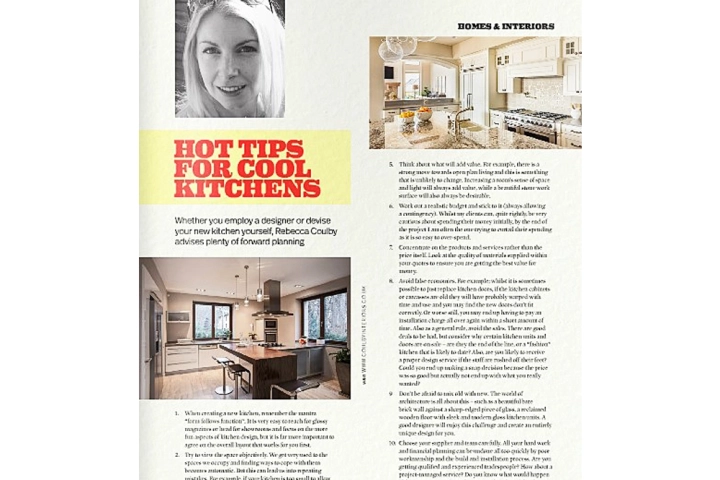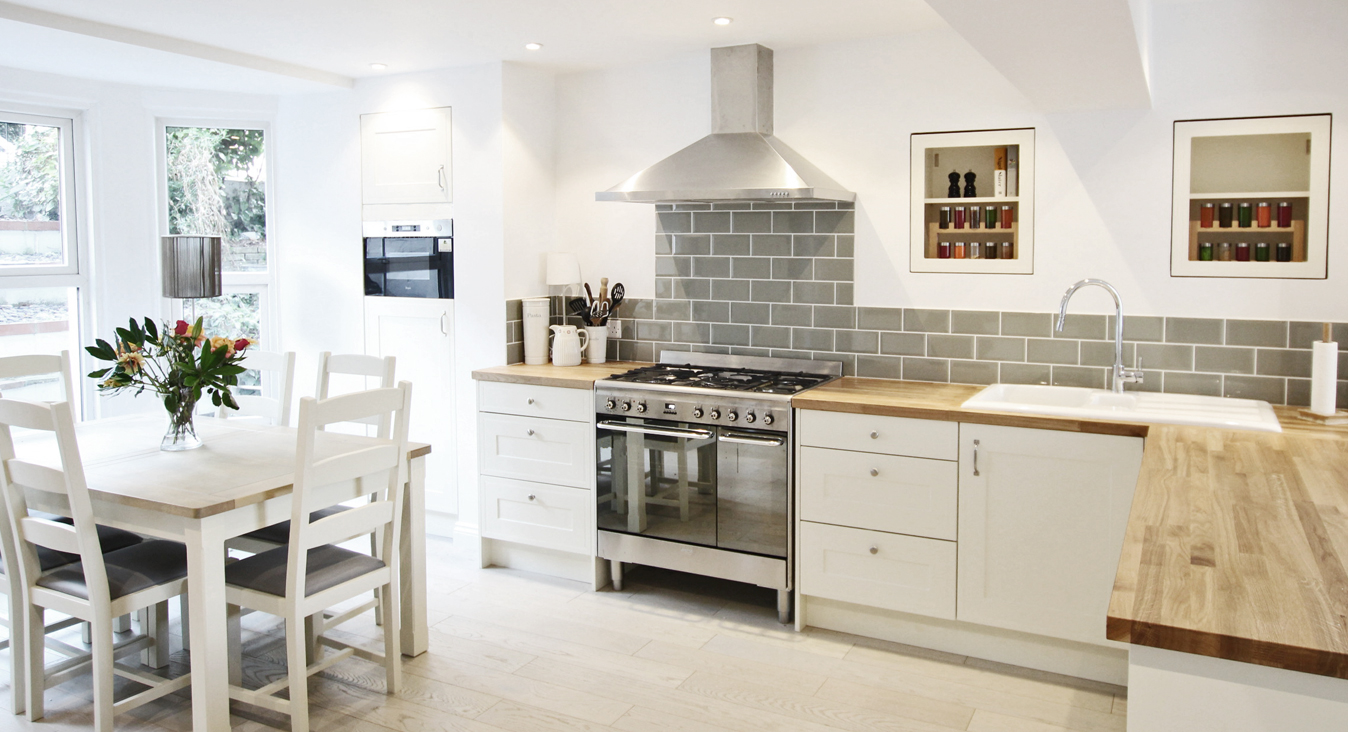
Top Tips for Cool Kitchens
Whether you employ a designer or devise your new kitchen yourself, plenty of forward planning is essential.

1. When creating a new kitchen, remember the mantra "form follows function". It is very easy to reach for glossy magazines or head for showrooms and focus on the more fun aspects of kitchen design, but it is far more important to agree on the overall layout that works for you first.
2. Try to view the space objectively. We get very used to the spaces we occupy and finding ways to cope with them becomes automatic. But this can lead us into repeating mistakes. For example, if your kitchen is too small to allow seating, but you feel this is important, then before simply replacing your units and worktops, investigate the rooms surrounding your kitchen, including the outside space. Could you extend or knock through a wall to create a far more suitable kitchen for your investment?
3. Plan your kitchen with your future needs in mind. Flexible seating is one such example - it may not work for you to have a bar with bar stools now if you have a young family, but within a couple of years your little ones could be sitting up at a bar to eat!
4. Make choices for longevity. Opt for classic materials and soft tones and colours that shouldn't date - that way you are more likely to see a sound return for your investment.
5. Think about what will add value. For example, there is a strong move towards open plan living and this is something that is unlikely to change. Increasing a room's sense of space and light will always add value, while a beautiful stone work surface will also always be desirable.
6. Work out a realistic budget and stick to it (always allowing a contingency) Whilst my clients can, quite rightly, be very cautious about spending their money initially, by the end of the project I am often the one trying to curtail their spending as it is so easy to over spend.
7. Concentrate on the products and services rather than the price itself. Look at the quality of materials supplied within your quotes to ensure you are getting the best value for money.
8. Avoid false economies. For example; whilst it is sometimes possible to just replace kitchen doors, if the kitchen cabinets or carcasses are old, they will have probably warped with time and use and you may end up having to pay an installation charge all over again within a short amount of time. Also as a general rule, avoid the sales. There are good deals to be had, but consider why certain kitchen units and doors are on sale - are they the end of the line, or a "fashion" kitchen that is likely to date? Also are you likely to receive a proper design service if the staff are rushed off their feet? Could you end up making a snap decision because the price was so good but actually not end up with what you really wanted?
9. Don't be afraid to mix old with new. The world of architecture is all about this - such as a beautiful bare brick wall against a sharp-edged piece of glass, a reclaimed wooden floor with sleek and modern gloss kitchen units. A good designer will enjoy this challenge and create an entirely unique design for you.
10. Choose your supplier and team carefully. All your hard work and financial planning can be undone all too quickly by poor workmanship and the build and the build and installation process. Are you getting qualified and experienced tradespeople? Have you considered a project-managed service? Do you know what would happen if things go wrong? Get references and testimonials where possible and make sure you have a full understanding of the service that is being offered to avoid disappointment.
